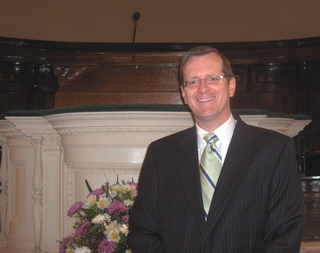A Quote by Jeremiah Burroughs
Christian contentment is that sweet, inward, quiet, gracious frame of spirit, which freely submits to and delights in God's wise and fatherly disposal in every condition.
Related Quotes
God abides in each commandment by His gracious power. "God is hidden in His commandments", says St. Mark the Ascetic. God helps everyone who strives to keep His commandments. That God abides in us we know by the Spirit, which He has given us. This means that a Christian is never alone, but that he lives and works together with the Thrice-Holy God.
The Gospel is temporary, but the law is eternal and is restored precisely through the Gospel. Freedom from the law consists, then, not in the fact that the Christian has nothing more to do with the law, but lies in the fact that the law demands nothing more from the Christian as a condition of salvation. The law can no longer judge and condemn him. Instead he delights in the law of God according to the inner man and yearns for it day and night.
When we assume God to be a guiding principle well, sure enough, a god is usually characteristic of a certain system of thought or morality. For instance, take the Christian God, the summum bonum: God is love, love being the highest moral principle; and God is spirit, the spirit being the supreme idea of meaning. All our Christian moral concepts derive from such assumptions, and the supreme essence of all of them is what we call God.
Do not allow darkness and gloom to enter into your hearts. I want to give you a rule by which you may know that the spirit which you have is the right spirit. The Spirit of God produces cheerfulness, joy, light and good feelings. Whenever you feel gloomy and despondent and are downcast, unless it be for your sins, you may know it is not the Spirit of God which you have. Fight against it and drive it out of your heart. The Spirit of God is a spirit of hope; it is not a spirit of gloom.

































